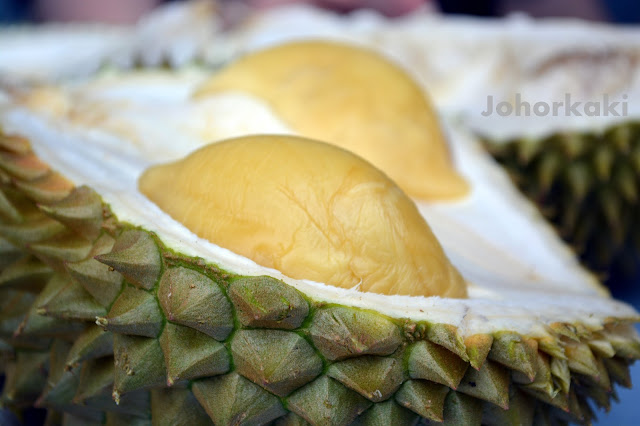
There is no doubt that the Mao Shan Wang 猫山王 or Musang King is the most popular and also most prized of all durians now. (The Mao Shan Wang is named after Gua Musang town, the main fruit trading centre in Kelantan, Malaysia. The cultivar is originally from the town of Tanah Merah, also in Kelantan.)
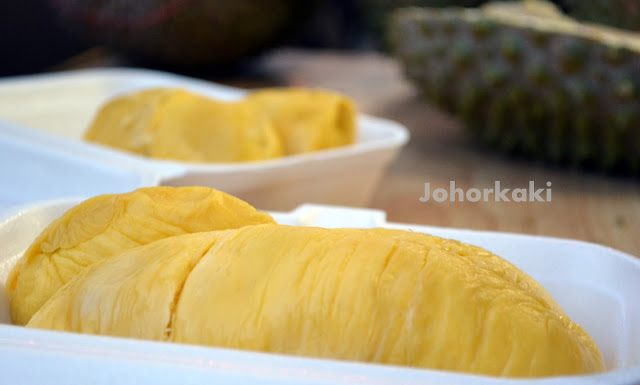
The texture of thick Mao Shan Wang flesh is rich and creamy like toasted marshmallow. On the palate Mao Shan Wang flesh tastes slightly bitter with sweet notes. On the nose, its aroma is sweet and mildly pungent without being overpowering.

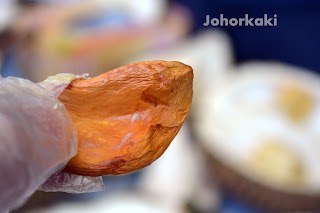
The Mao Shan Wang seed is flat and quite small.
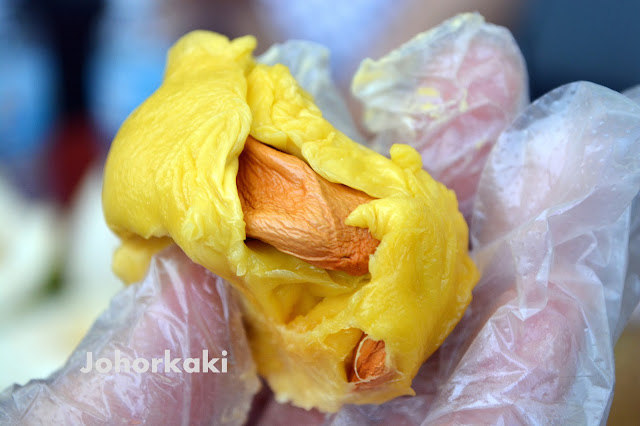
Sometimes the waxy seed peeks out from folds in the slightly glowing yellow flesh. As you can see, the Mao Shan Wang flesh literary undrapes itself from the waxy seed.
While there is no question about the Mao Shan Wang's allure, identifying the real McCoy may sometimes be challenging.
This post aims to help us avoid fake Mao Shan Wang durians. Unfortunately, there is no 100% foolproof method against being sold a fake. We can, however, substantially improve our chances by learning more about the Mao Shan Wang.
Only the external identifying features are listed here as most durians are sold on an "once opened considered sold" basis unless it is obviously rotten or unripe.
To identify a real Mao Shan Wang, check that it has all the following five external features together. Other cultivars may have some but not all five features altogether.
Look out for these five external features in a single durian:
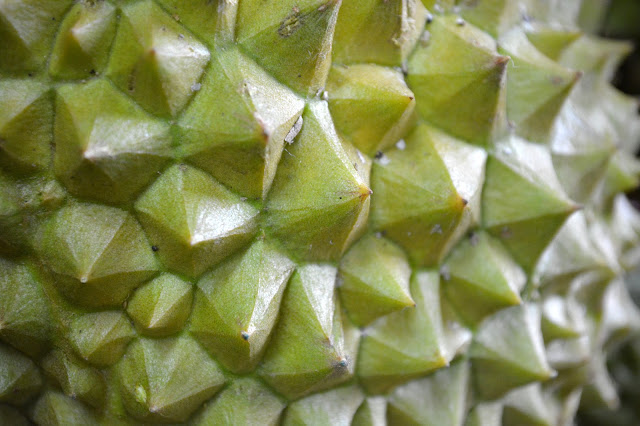
Mao Shan Wang thorns are like small pyramids with flat angular sides unlike some other durians with conical thorns.
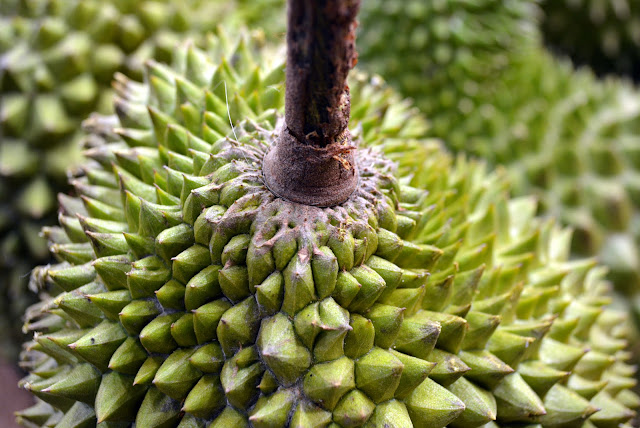
The thorns converge at the base of the stem forming a bald brownish ring around it.
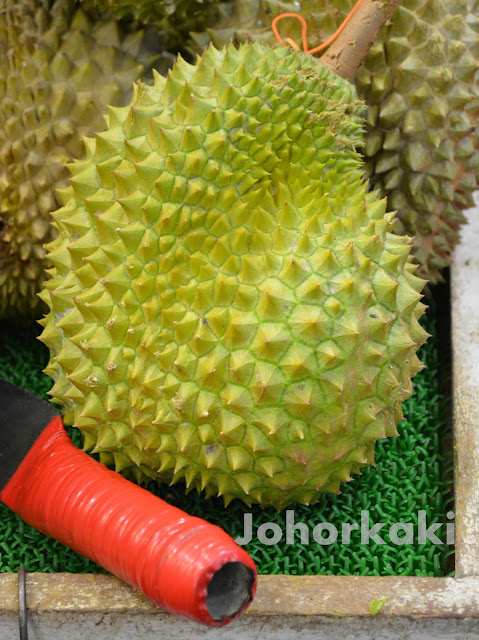
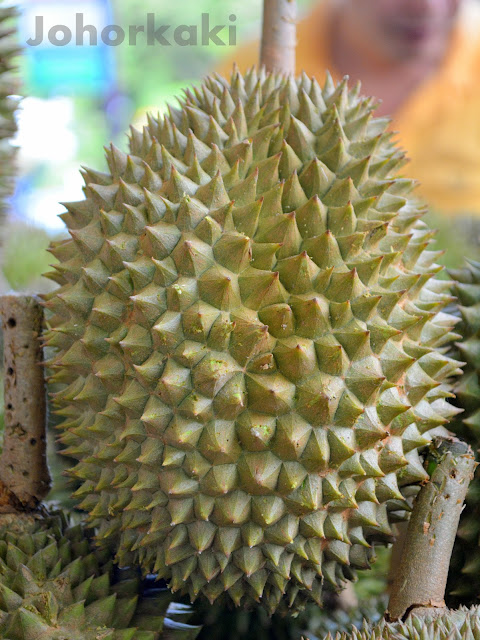
The Mao Shan Wang is mostly oval shaped like an egg or sometimes even a pear. Rarely, it is round like a bowling ball.
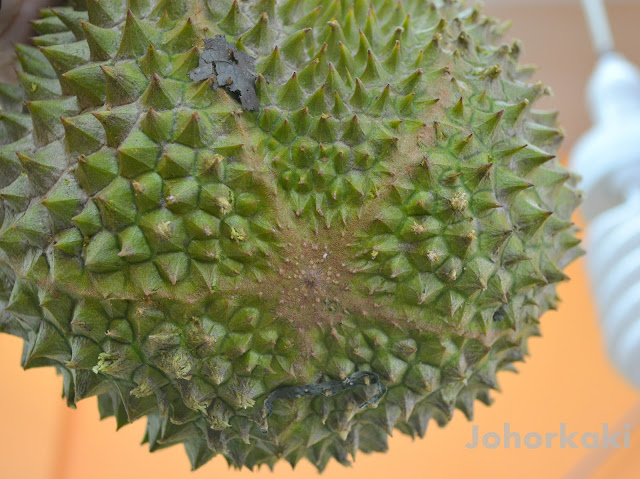
There is a characteristic brownish 5-arm "starfish" at the base of the Mao Shan Wang. The thin, longish arms warp the base of the durian and run up to the middle of the shell as if it is trying to hold it together tightly.
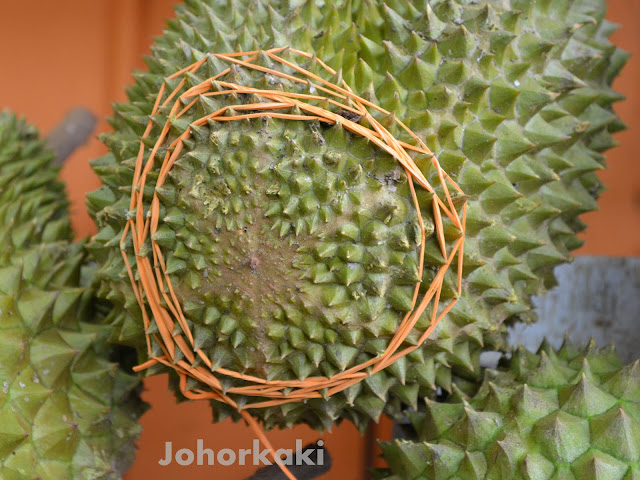
The "body" of the "starfish" is brownish in colour, flat and bald. It is not pointy or bulging and the thorns do not gather or converge here. In the Mao Shan Wang, the thorns at the base are parted away from the "bald patch".
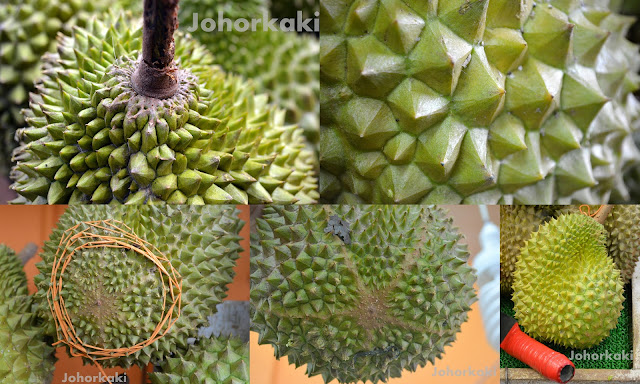
Before asking the durian seller to open the durian, look out for these five external features in a single durian.
With these five external identifying features, hopefully we never have to suffer another fake Mao Shan Wang again :)

A reader suggested that I have a side-by-side comparison of MSW with other durians so that it is easier to identify the real thing. I agree that it's a good suggestion and so here is the post <- click.
Read more: http://johorkaki.blogspot.com/2013/08/how-to-never-be-sold-fake-mao-shan-wang.html